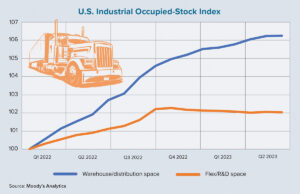What is the value of a commercial mortgage broker? How do these professionals prove their value, and how do borrowers and lenders value their services? Merriam-Webster defines value as “relative worth, utility or importance.” It is measurable and quantifiable.
Given these definitions, the fees that lenders pay for services are a function of the broker’s worth. To determine their worth, we have to ask, what value do they bring to the transaction? It sounds easy. Their fee is 1%, 1.5% or something similar because that’s what other mortgage brokers charge. Theoretically, whomever a lender deals with should charge the same rate to stay competitive.
Is this how to best operate a commercial mortgage brokerage — to simply do the same as every other broker and assume the business will be successful? No, it is not. Mortgage brokers are individuals and must run their companies in their own way. This includes defining their value in the real estate funding process.
The first step for brokers to define their true value is to define their interpretation of success. It needs to be put in writing and defined, again, with measurable and quantifiable standards. If success cannot be defined, it cannot be achieved.
It should be noted that there may not be one definition of personal success. It may come in layers — different quantifiable levels of achievement spread over months or even years. It is human nature that when one level of success is achieved, a higher level of success is defined and the process continues.
Defining success
Regardless of the guidance offered by the latest how-to books written by well-known and successful business leaders, success is not a paint-by-numbers process. Business coaches and advisers tell us that leadership, the product or service offered, marketing efforts, company personnel, quality customer service and technology are the traits that lead to success. Great advice — and all of these are correct — but can it be explained more specifically? Can it be more personal and more simplistic?
Although there is no single absolute prescription for success, there are certain self-management procedures or techniques that, if followed closely, can lead most people much closer to success, regardless of the endeavor they attempt. In many situations, there are an array of influences or forces that determine the outcome of a broker’s efforts. Some are beyond their control, yet just as many are within their control. And the forces within their control may have a more meaningful impact on desired results.
A good leader recognizes that our world, our industry and our way of doing business is changing. This demands innovative strategies, new tools and fresh marketing concepts. If commercial mortgage professionals are afraid of the latest ideas and strategies, they are probably lost from the outset.
Changing world
Brokers can be assured that a lender’s world is constantly changing as well. Since a bank is a mirror of the economy, every change or event occurring throughout our economic system impacts the commercial mortgage industry. And this may well cause the lender to be remolded and redirected along new, different and better lines. This process may change the lending philosophy and strategy of every bank, big and small.
Successful mortgage brokers will continually adapt to innovative technologies and new ways of working. It’s no mystery that the demands of the workplace are changing. This may include adapting to a remote or hybrid work environment, or developing what may be perceived as a more diverse and inclusive workplace. Other changes may include discovering new ways to enhance productivity while working in a state of constant flux.
After every major economic event there is a degree of indecision and hesitation within the financial markets. But over time, new lending strategies permeate these organizations and new credit standards appear. These last until the next economic incident spins across the country, and the entire process starts all over again.
It is incumbent for the commercial mortgage broker to stay abreast of these changes in strategy as well as the underwriting standards that occur in each lending relationship. With few exceptions, a lender appreciates receiving a complete loan application that includes a financial analysis of the borrower. This proves that the broker understands the inherent risks of the loan while their thorough analysis points out the strengths and mitigating factors of the applicant, which justifies approving the request.
Understanding the client
Borrowers expect commercial mortgage brokers to understand their needs, to find and present their strengths, and to have an in-depth understanding of their market. Your value lies in helping to create new possibilities for the borrower — thus enabling the client to achieve critical business outcomes by staying competitive — and by advancing creative, relevant and tailored counsel that is available on demand.
A broker should have insights into specific lending criteria. They should be able to answer the following questions:
- How does the lender wish to expand its loan portfolio?
- What is the lender’s current appetite for risk?
- What loan size best fits the lender’s current goals?
- Does the lender have collateral preferences?
- Does the lender have project location requirements?
- What is the lender’s specific underwriting criteria?
When presenting a new application to one of their lenders, does the broker know what the lender expects? One point to keep in mind is that there may be a difference between what a lender will accept versus what it prefers.
The latter approach may be perceived as having greater value to the lender, thus allowing the broker to possibly earn more for the transaction. The less work the lender must perform to ready the application for approval, the faster the decision will take place. If a broker can prove the strength of the proposal, the cash flow needed to meet or exceed the lender’s minimum debt-service-coverage ratio, and that the risks involved will be mitigated, he or she is adding value.
Developing relationships
Strong relationships are a basic ingredient for success. This is fundamental for creating trust and loyalty between borrowers and lenders. Learned in Salesmanship 101, the basic skills of listening, empathizing and being curious are vital to developing lasting relationships and meaningful connections between borrowers and lenders. When it comes to selling themselves, their brokerages or their products, negotiation and persuasion are powerful tools and important ingredients that again prove the broker’s value.
Mistakes, blunders and errors are inevitable. It is not the end of the world; just own it. Do not find fault with others or try to shift the blame — just admit it and concentrate on finding the solution.
Shifting the concern from identifying who made the mistake to finding a quick solution can add to a broker’s value. Many mistakes will not harm a broker’s reputation, but refusing responsibility and passing the blame likely will. Remember the old saying that is often attributed to Benjamin Franklin: “Glass, china and reputation are easily cracked and never well mended.”
One final suggestion for brokers who are attempting to increase their value: They should add one new potential lender to their list each month. This adds up to 12 new potential loan sources per year. If the broker can convert three of these lenders to their regular funding list and completes two new deals per year with each of these companies, that is another six closed deals each year. How would this level of new business increase your bottom-line profitability?
● ● ●
A broker’s value is only enhanced by helping others find solutions to their needs. The possibilities are endless, as is a broker’s potential for additional income. ●
Author
-
Garry Barnes is managing director of PW Partners Consultancy, headquartered in Salt Lake City, and is a freelance writer. He is a former president and CEO of banks in Arizona, California and Utah. He has taught at the university level, and is a frequent writer and lecturer on banking, finance and real estate matters. Barnes has served on the U.S. Small Business Administration’s National Advisory Council and received the SBA Arizona Financial Services Advocate of the Year award.





